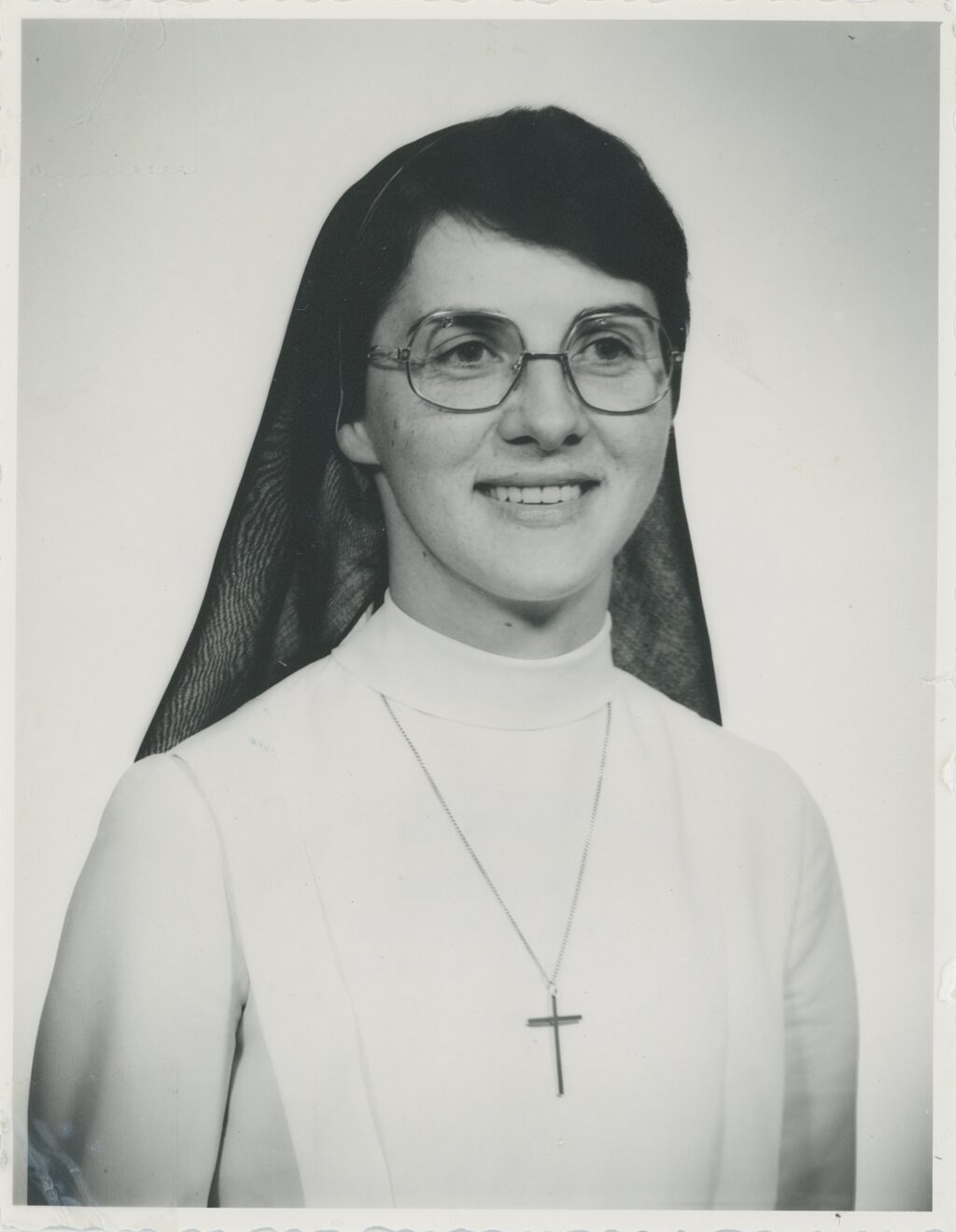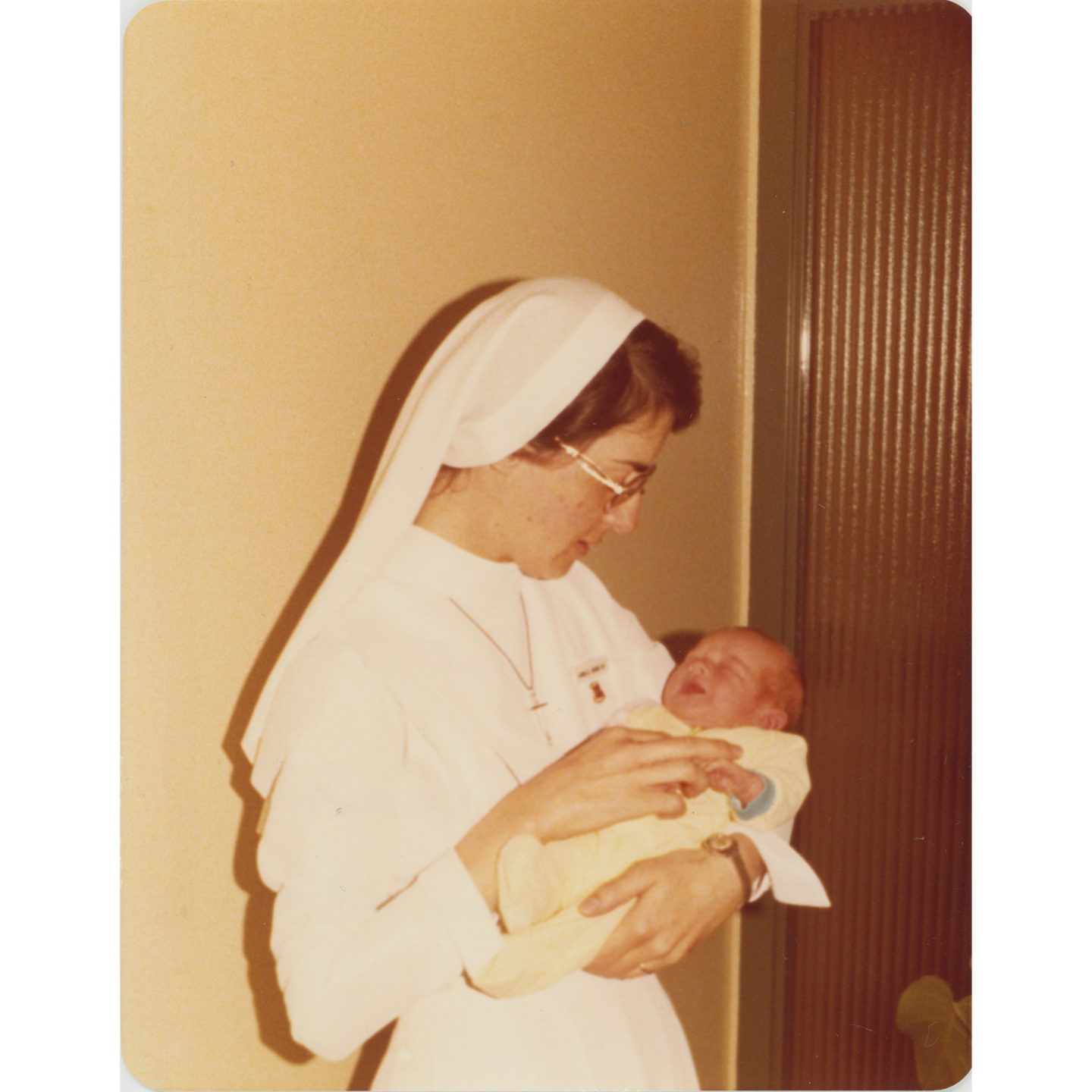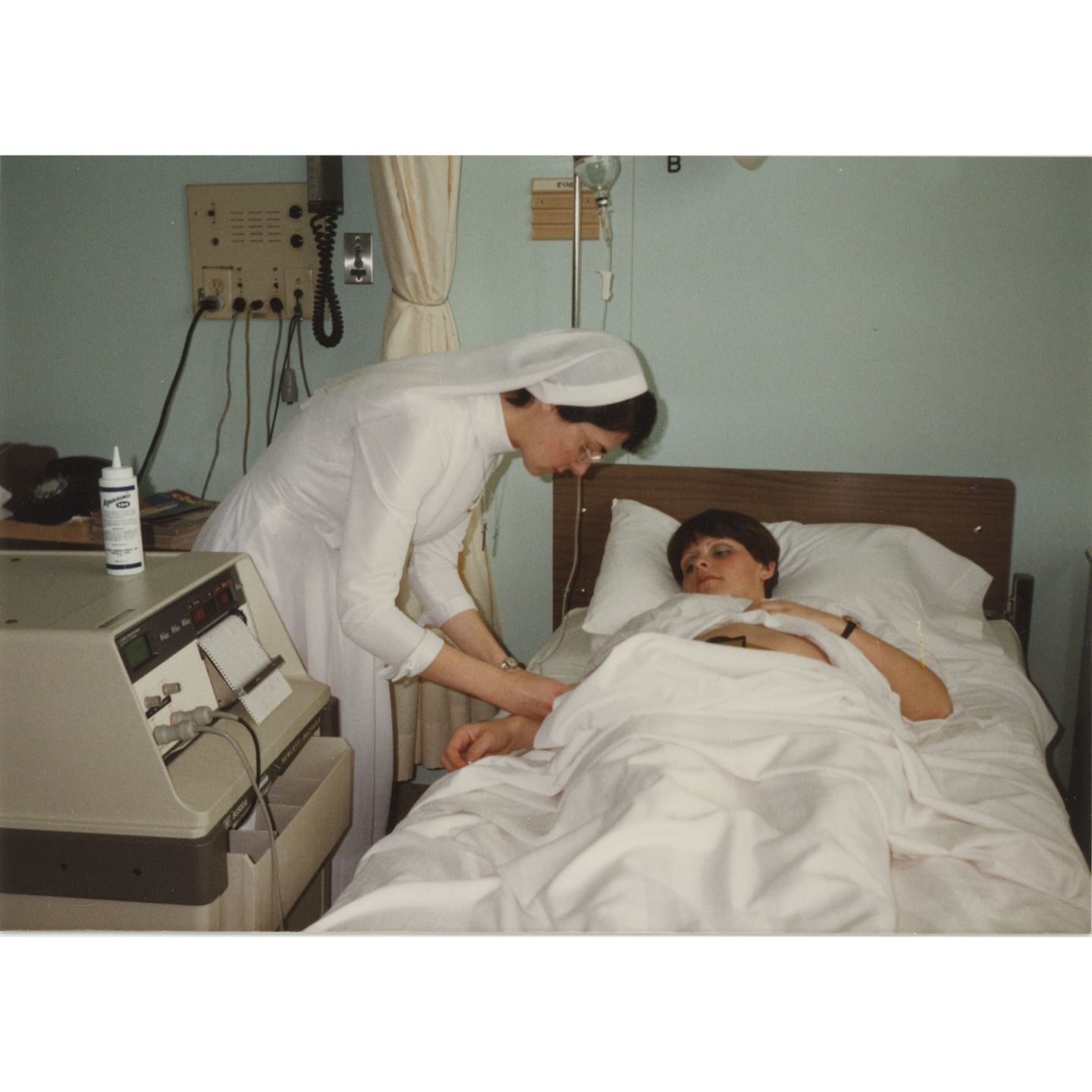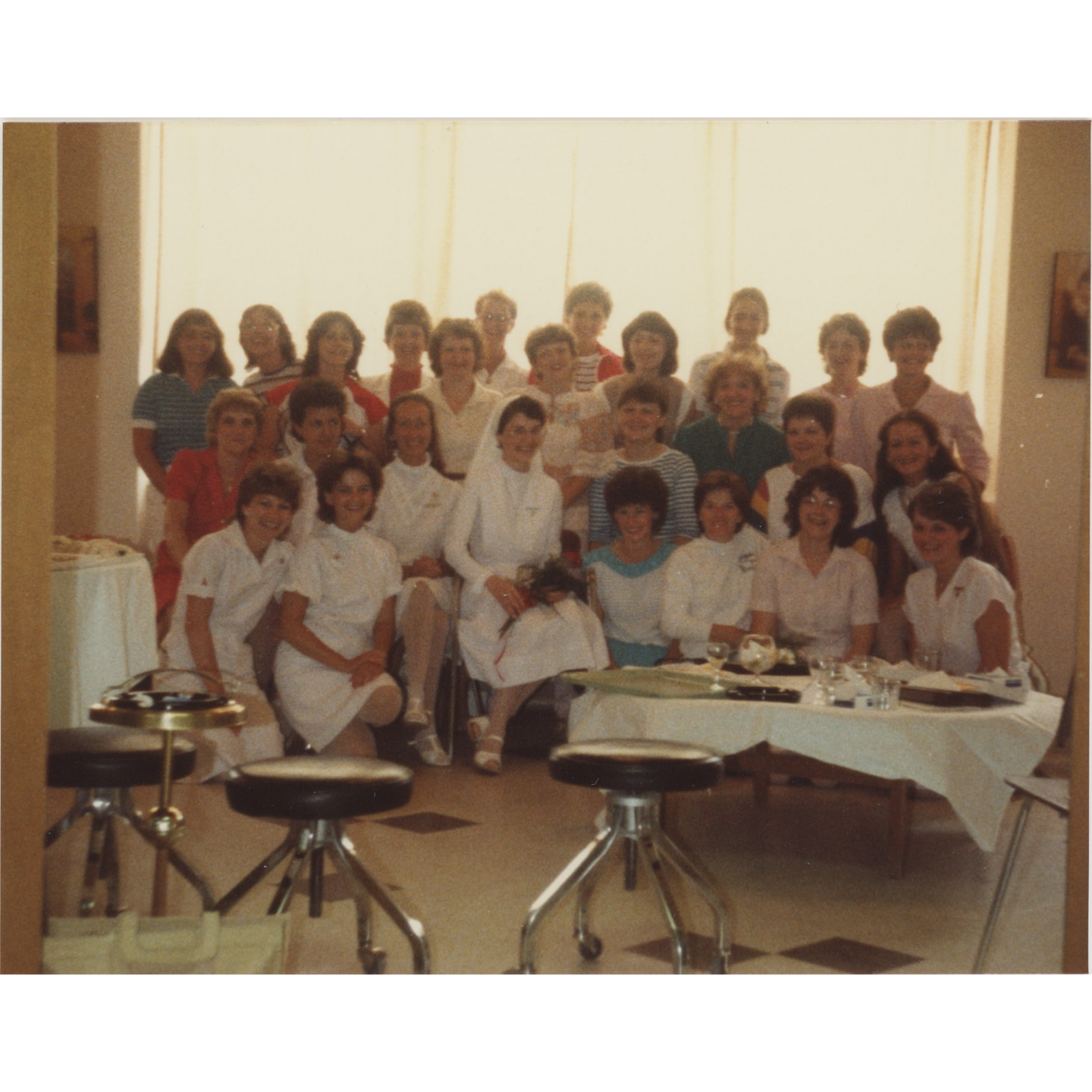Welcoming life
Women have been giving birth since the dawn of time, and while a birth is always a great event, it has not always been possible to give birth in favorable conditions. Sister Carmelle Bisson has fond memories of her work in obstetrics.
The Augustinian community has been caring for the sick for over three centuries in Quebec. Did you know that Augustinian nuns who devoted themselves to nursing were called “choir sisters”? Sister Carmelle Bisson practiced this profession for some twenty years.

Sister Carmelle Bisson, 1982, Fonds du monastère de l’Hôtel-Dieu de Roberval.
After her studies at Cégep de Sainte-Foy and Université Laval, the young nun went on to work in various hospitals, including the one in Roberval, where she was first a bedside nurse, then an obstetrics unit manager a few years later.
“There was one area that made a deep impression on me, and that was the maternity ward and the obstetric unit,” she recounts. She was soon confronted with a sanitized vision of maternity.
“When I arrived, around 80% of mothers gave birth under general anaesthetic. And I couldn’t conceive of it happening like that because welcoming life under general anaesthetic… Firstly, I hadn’t been trained like that and I found it difficult to see that the father was being left out and that the mother was giving birth without being aware of what was happening.”
Indeed, when she arrived in Roberval, the young woman had just completed several internships at Hôpital Saint-François d’Assise, then renowned for the quality and modernity of its obstetric care. It was the 70s.
“I became a nurse at a time when women were demanding natural childbirth, breastfeeding and prenatal classes. With the training I’d received, I found it hard to imagine that in my milieu, in the regions, women were still systematically anesthetized.”
Finding a solution


Sensitive to the beauty of birth, she is saddened to see mothers and fathers deprived of this unique moment. As a good Augustine, she looked for a solution, which she found with her team. She then proposed a project to overhaul practices at the Roberval hospital.
We presented a project to reverse the 80% curve,” she recalls. At the time, we were in charge of community health. This resulted in the opening of an obstetrical unit, an increase in the number of nurses, training and the possibility of natural childbirth.”
The results were not long in coming. “Finally, after 15 months, we found ourselves with 90% of mothers giving birth naturally,” she recounts with a smile. The father could also be present and even touch his child, at the same time as the mother who welcomed him on top of her.”
Once these changes were in place, the evolution of birthing practices followed naturally. “Natural childbirth led to birth chambers, to a period of cohabitation with the baby, and not just for the mother,” she mentions, moved.
Humanizing care
“I couldn’t conceive that the women who were consciously carrying life were giving birth unconsciously, with strangers welcoming the babies,” she recalls.
How do you create a bond of attachment? What is the meaning of such a unique event if it is experienced without the presence of loved ones? These were also the questions that prompted Sister Carmelle to change things. For her, care had to be humanized.
“For me, caring for a sick person could be as simple as lifting their head, rearranging their pillow to make them comfortable, fetching them a glass of fresh water, accomplishing these gestures with a great deal of interiority and love.”
Giving birth in 2024 is very different: you make your birth plan, decorate the room, choose the music and the people who attend the event. But small gestures are still the most appreciated.
It’s these small gestures that we find at Le Monastère des Augustines when we stay there. In fact, preparing for childbirth from an overall health perspective can be highly beneficial! Pregnancy can be a key time to take care of your physical, emotional, mental and spiritual health.
Finally, taking the time to rest, whether at home, in a cherished place or during a retreat, helps us to be mindful of our overall health. Knowing how to listen and take care of oneself is fundamental to being able to take better care of others. A value dear to Sister Carmelle, an Augustinian legacy.



